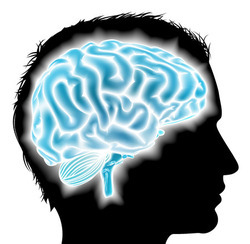What is going on when you take modafinil
The mechanism inside the body is not totally known, but scientists do consider it different from other stimulants. Unlike amphetamines and Ritalin, Provigil does not act as a direct or indirect dopamine receptor agonist nor does it bind to possibly relevant receptors including those for norepinephrine, serotonin, gamma-aminobutyric acid (GABA), and dopamine uptake. It does, however, affect those neurotransmitter systems in the brain, as well as systems for orexin, histamine, and catecholamines. The catecholamine effects appear to be the main ones. And while it doesn't directly occup dopamine receptors, it may interact with dopamine transporters in the brain.
A study published in the Journal of the American Medical Association says about modafinil: "Although initially launched as distinct from stimulants that increase extracellular dopamine by targeting dopamine transporters, recent preclinical studies suggest otherwise." Abstract here.
Modafinil also does not work unless the patient has a good alpha-one-adrenergic system, but does not appear to be a direct or indirect alpha-adregenergic agonist. The level of c-fos expression rises in patients on Provigil, in certain areas of the brain. (Agonists are substances that bind to and cause a functional effect identical in quality and quantity to the endogenous ligand, in this case alpha-adregens.) Modafinil apparently has some selectivity for cortical over subcortical sites of action.
Provigil affects the activation of orexin-containing neurons. Neurons of the lateral hypothalamus exclusively produce orexin-A and orexin-B, neuropeptides made of 33 and 28 amino acids. These orexins act at axon terminals, increasing the release of the inhibitory transmitter GABA and the excitatory transmitter glutamate. This fact does not necessarily determine the mechanism of action for Provigil, but confirms its action on the hypothalamus. Experiments on animals without orexin show that modafinil still works, so orexin is not required to mediate the drug's effects.
Researchers have also found that coadministration of Provigil and drugs
that are substrates, inhibitors, or inducers of the cytochrome P450 isoenzymes
may lead to reductions in plasma concentrations of modafinil. The drugs
seems to work for people both in good health and with mental illness,
and has been proposed as a way to treat cognitive dysfunction for people
with pyschiatric disorders.
Modafinil has broadened the range of therapeutic options
Related: Mofafinil and Drug Tests
Different Kind of Stimulant
